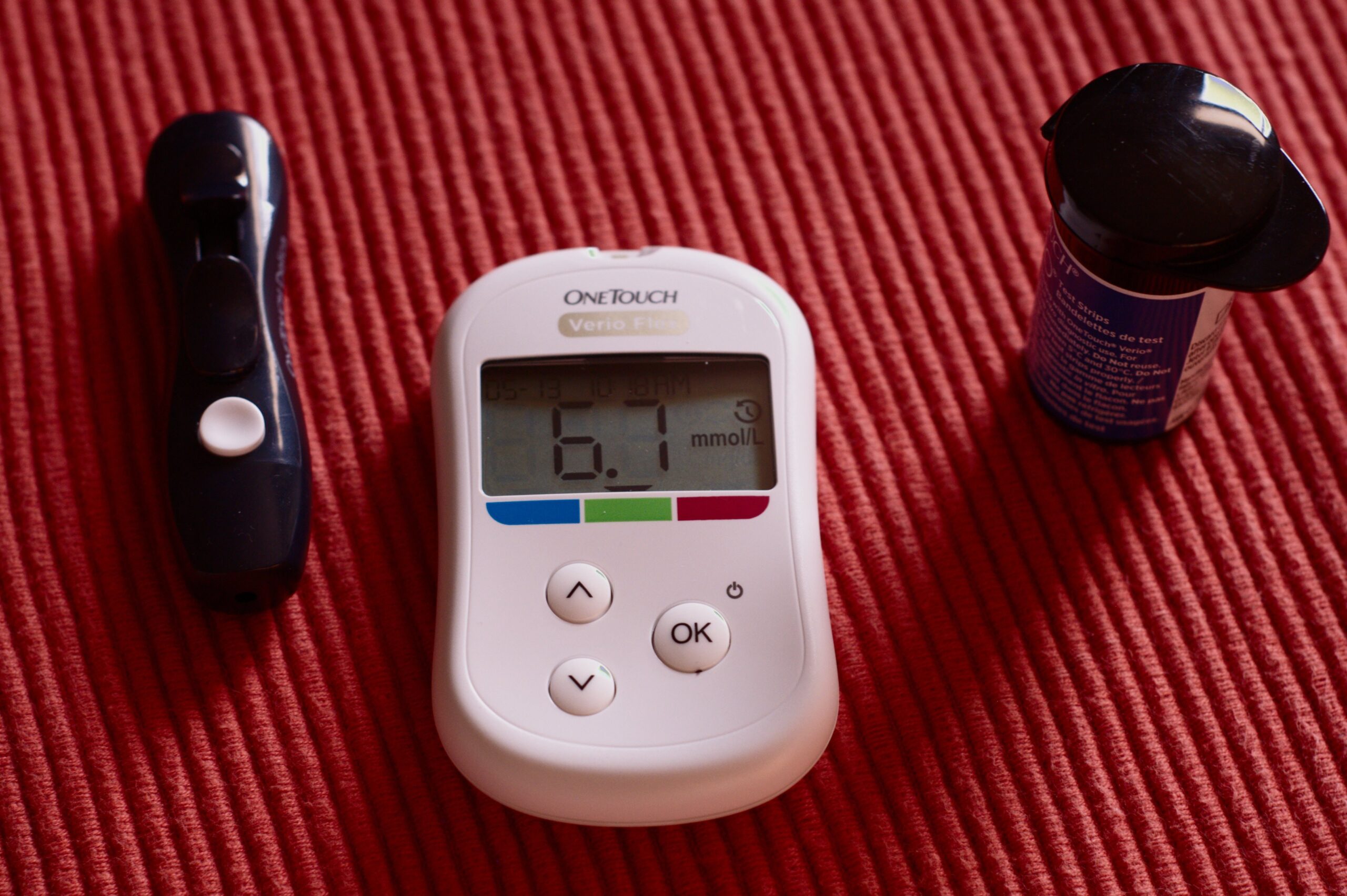Intermittent fasting has completely taken over the health and wellness scene. Searches for intermittent fasting have reached record levels online, and more and more celebrities are trying the approach. Who ever thought that skipping meals could become so popular?
However, there are numerous reasons why intermittent fasting has taken off. There has been a huge increase in the number of scientific studies behind the approach – each showing favorable results. The simple act of skipping breakfast or dinner on a regular basis, may even be one of the secrets to living a longer life.
Of course, it must be noted that a healthy diet during the rest of the day, is crucial for success. You can’t simply skip meals, and then eat junk food. Success with any dietary approach focuses on overall food quality, as well as a constrained number of overall calories consumed.
Unless you are on a mass gaining plan, you will want to keep your calories in check, and regularly practice intermittent fasting. Combining fasting with keto, will provide even more metabolic benefits. Since benefits have been seen from the keto diet for diabetics, it’s important to combine a low sugar diet with fasting – if you want the best possible health outcomes.
As the science continues to show the possible outcomes of intermittent fasting, it’s important to review the myriad number of benefits that come with the approach.
What Is Intermittent Fasting?

Intermittent fasting can be thought of in relatively simple terms. Any time you stop eating, you’re technically intermittently fasting. If you eat at 5PM, go to sleep, and don’t eat breakfast until 5AM – congratulations, you’ve technically intermittent fasted for 12 hours.
However, once you get beyond this overly simplistic definition, there are many more nuances to understand about intermittent fasting. Unlike most diets or dietary approaches, intermittent fasting does not tell you what foods to eat, but rather, when not to eat. This shift to timing, rather than a list of foods, is part of what has caught the public’s eye.
Instead of the usual ‘eat this, not that’ – intermittent fasting allows the dieter a measure of control over how they wish to eat. Want to skip breakfast tomorrow? Intermittent fasting allows you to. Want to not eat for an entire day? You can simply perform a 24 hour fast.
Of course, beyond this, there are many highly structured ways to partake in intermittent fasting. Perhaps the most popular, is 16/8 intermittent fasting. This method is employed by eating all meals within an 8-hour window, and fasting for the remaining 16 hours of the day. Once you have gone a few hours without eating, your body starts to undergo a variety of cellular and metabolic changes.
In fact, this pattern of consumption, followed by periods of eating nothing, is very similar to how our ancestors evolved. Since they were foraging for their own food, it was not uncommon for our ancestors to go 24 hours (or more) without food. It is assumed this is where the scientific mechanisms behind intermittent fasting come from.
Interestingly, scientists also surmise that the ability to produce our own energy, without carbohydrate intake, came from this same evolutionary need. The keto diet employs this scientific process, as ketone bodies are manufactured from stored fatty acids, so we can survive periods of carbohydrate scarcity.
Rather than starving to death, our bodies adapted to the lack of food available, and actually thrived in this environment. Our cells not only adjust their hormone levels, but there are actual changes in genetic expression, which occur when you start fasting.
Intermittent fasting also lowers insulin levels, and actually raises the level of growth hormone inside your body. Who knew this much would happen, just by skipping breakfast?
Better Weight Loss
Intermittent fasting has one very important, broad appeal – it can help with weight and fat loss. There is nothing more coveted in the health and wellness world (or in the world at large) – than weight loss. While the standard “eat less, and move more” approach still works – it’s not sexy.
The promise of a new approach, that will aid in weight and fat loss – is what’s key here. In numerous scientific studies, those who practiced intermittent fasting regularly lost both weight and fat. Fasting can also be coupled with a ketogenic diet, for even greater impact.
The concept behind fasting is simple – by not eating, we decrease our insulin levels, allowing your body to dip into its stored fat. Ketosis already has your body in a better fat burning state, so the fat loss effects are heightened even more.
Better Blood Sugar Levels
Interestingly, intermittent fasting has also been linked with improved blood sugar levels. This makes sense, since insulin and blood sugar levels drop when food isn’t being consumed. As long as you keep the rest of your diet in line for the rest of the day, each day of intermittent fasting will improve your blood sugar levels.
For those suffering from diabetes, this is great news, and part of the reason why intermittent fasting has gained such popularity. If you combine intermittent fasting and the keto diet, you can lower your blood sugar levels greatly, and quickly (and easily) lose weight.
Less Inflammation
As we’ve written about previously, inflammation can be greatly reduced with a ketogenic diet. Combining keto with intermittent fasting, leads to an even greater reduction in inflammation. This is due to the number of internal changes that occur, when fasting begins.
The way to cause inflammation? Eat a high sugar diet, that is also very low in nutrients. Continual inflammation can lead to a host of diseases and conditions, all of which you will want to avoid.
Improved Neurological Function
One of the most interesting aspects of the scientific research behind intermittent fasting, are the neurological benefits. Research shows that intermittent fasting can suppress inflammation in the brain, which is linked to many different neurological conditions. Other studies found that fasting may also reduce the risk of neurological disorders, like Parkinson’s disease, Alzheimer’s, and even possibly lowering the risk of a stroke.
One study showed that by fasting for 11 months, there was both improved both brain function, and better brain structure. The body of research in this area continues to grow, and more and more neuroscientists are convinced that intermittent fasting provides a number of key neurological benefits.
Increase In Growth Hormone
Human growth hormone (HGH) is crucial for many physical processes. It’s important for weight loss, muscle strength, muscle growth, and your metabolism. Multiple scientific studies have shown that intermittent fasting may aid in increasing HGH levels.
Another study showed that fasting for just 24 hours significantly increased HGH. While obtaining HGH illegally is not okay (obviously), natural increases in HGH are highly coveted. You can also obtain a prescription for HGH, if your body has trouble producing it on its own.
Another scientific study showed that fasting for just two days increased HGH levels by 5x. Fasting also works to lower blood sugar and insulin levels, which may further increase HGH levels in the body.
Possible Reversal Of Type 2 Diabetes
Intermittent fasting has been shown to better control blood sugar and insulin levels. Since these two factors are very closely intertwined with type 2 diabetes, it makes sense that regular intermittent fasting will help to control (and even improve) diabetes.
Of course, this is in reference to type 2 diabetes, as type 1 is not reversible. Research has shown that fasting significantly decreases blood sugar levels in those with type 2 diabetes. Other research has looked at fasting as an alternative for insulin, in those with diabetes.
Increased Energy
Somewhat counterintuitively, intermittent fasting has been shown to provide you with more energy. This likely has to do with the better control of insulin and blood sugar, which comes with regularly fasting.
Fasting also allows your body to skip the process of breaking down food and turning it into glucose, which requires a large amount of energy. During the time period where you avoid this process, you are likely to feel more energetic. Essentially, and especially when combined with a ketogenic diet, fasting provides you with more energy throughout the day – by avoiding the processing and breaking down of carbohydrates.
Increased Fat Burning
Who wouldn’t want to follow a protocol that leads to an increase in fat burning? Fasting has been shown in multiple studies to improve rates of fat burning, and has also shown an overall improvement to metabolism.
Interestingly, even the time of day may matter, for fat burning benefits. For example, fasting that limits meals to earlier in the day may lower appetite, as well as burn off more body fat. In this study, eating between 8AM and 2PM decreased levels of ghrelin, and led to more fat burning.
Improved Cholesterol
High cholesterol is a very treatable risk factor. If not handled, high cholesterol becomes a serious issue, and it can lead to many health problems. Multiple studies have shown that fasting improves cholesterol levels, and leads to better health outcomes.
Fasting decreases triglyceride levels, and also drastically reduces LDL (the “bad” cholesterol). This is critical information for those suffering with high cholesterol, and when paired with a keto diet, cholesterol levels can improve even more.
Lowered Insulin Levels
Intermittent fasting has also been shown to lower insulin levels, which has a wide variety of physiological benefits. For starters, lowered insulin levels lead to increased fat loss. If you have weight gain issues, or are struggling to lose weight, lowering your insulin is critical to success.
Maintaining a diet that lowers (or completely eliminates) carbohydrate intake, is also crucial for keeping your insulin levels low. A ketogenic diet is perfect for this, as it naturally lowers multiple risk factors for weight gain, including insulin.
Possible Increase In Lifespan
Interestingly, fasting may help improve your overall lifespan. Caloric restriction has also been shown to possibly increase longevity. Other studies confirm that practicing fasting regularly, helps with multiple biomarkers of health, which may lead to a longer life.
Increase In Autophagy
One of the first publicized benefits of fasting, increased autophagy leads to a number of important cellular changes. Autophagy can simply be thought of as cellular ‘cleaning house’, in which proteins are recycled, and the body becomes more efficient at producing energy.
Autophagy also removes damaged cellular components. This includes misfolded proteins, and other cellular “garbage”. Intermittent fasting also helps to activate AMPK signaling, which is crucial for many important cellular processes. Fasting also inhibits mTOR activity, which helps to activate autophagy.
In Conclusion…
Intermittent fasting and the keto diet have taken the world by storm. Nearly 2 million people per month search for information about the keto diet, and combined with intermittent fasting, it is the most popular nutritional approach in the world.
Unlike a traditional western diet, ketogenic diets rely on ketone bodies, rather than glucose. Since keto dieters eschew carbohydrates completely, they don’t have a steady supply of glucose, or good amounts of glycogen stored.
Therefore, they must rely on an alternative fuel source. This alternative fuel source is ketones, which are made by your liver. Taking fat and converting it into energy, is called beta-oxidation.
Much like diabetics who track their blood sugar levels throughout the day, keto dieters like to track their ketone levels. Traditionally, this has been a difficult task, as the existing options were less than optimal.
You could use ketone urine testing strips, or prick your finger multiple times a day, and use a ketone blood test. But the best way to test your ketone levels – especially multiple times a day – is using our patented, clinically-backed ketone breath monitor.



